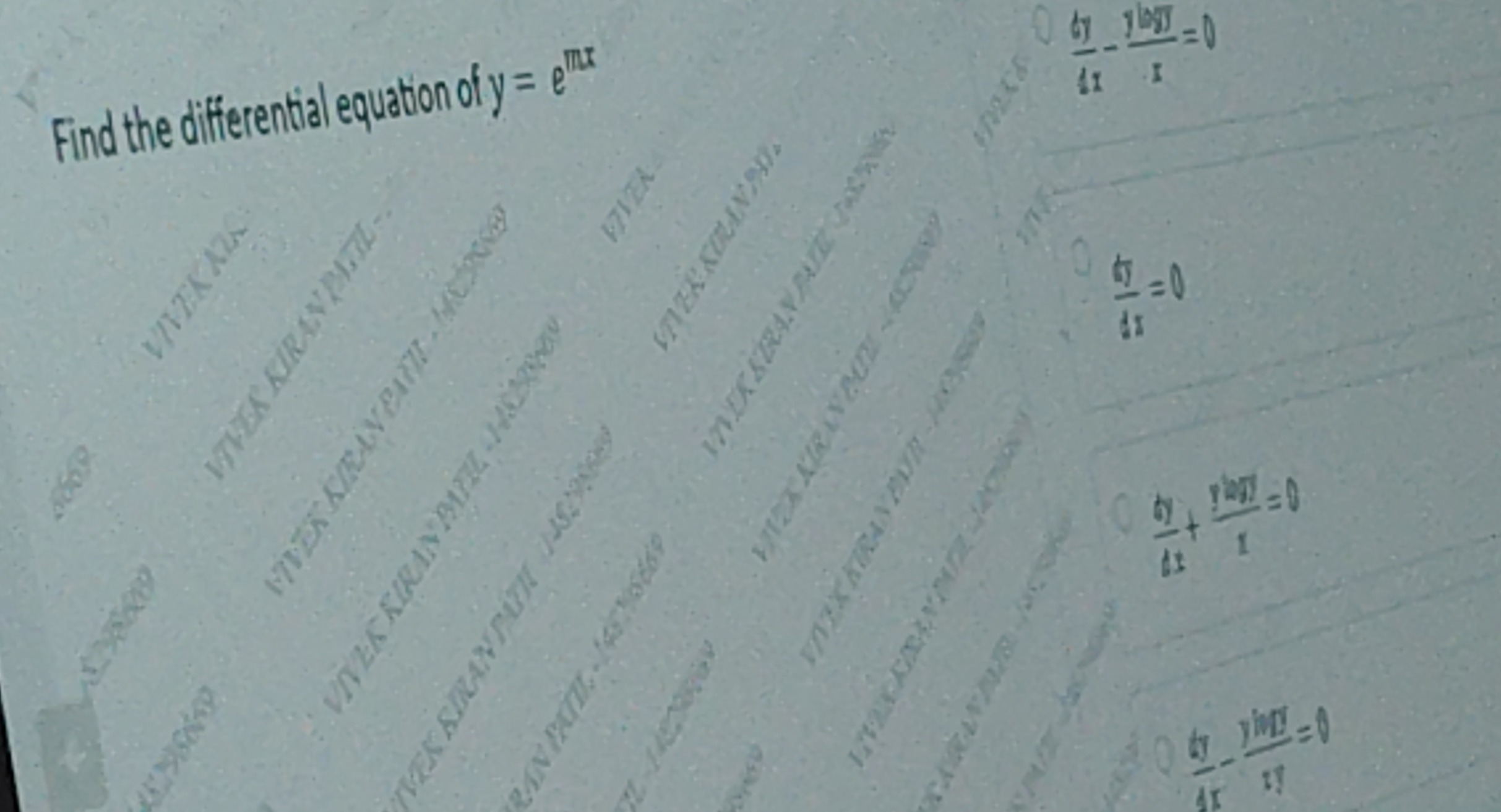Question
Question: Find the differential equation of y = $e^{mx}$...
Find the differential equation of y = emx

dxdy−xylogy=0
dxdy=0
dxdy+xylogy=0
dxdy−xyylogy=0
dxdy−xylogy=0
Solution
To find the differential equation for the given function y=emx, we need to eliminate the arbitrary constant 'm'.
-
Given function: y=emx⋯(1)
-
Differentiate equation (1) with respect to x: dxdy=dxd(emx) dxdy=memx⋯(2)
-
Substitute y from equation (1) into equation (2): From (1), we know emx=y. So, dxdy=my⋯(3)
-
Eliminate 'm' using equation (1): Take the natural logarithm (ln) on both sides of equation (1): lny=ln(emx) lny=mx Now, solve for 'm': m=xlny⋯(4)
-
Substitute the expression for 'm' from equation (4) into equation (3): dxdy=(xlny)y dxdy=xylny
-
Rearrange the equation to match the given options: dxdy−xylny=0
Assuming logy in the options refers to lny (natural logarithm), this matches the first option.
